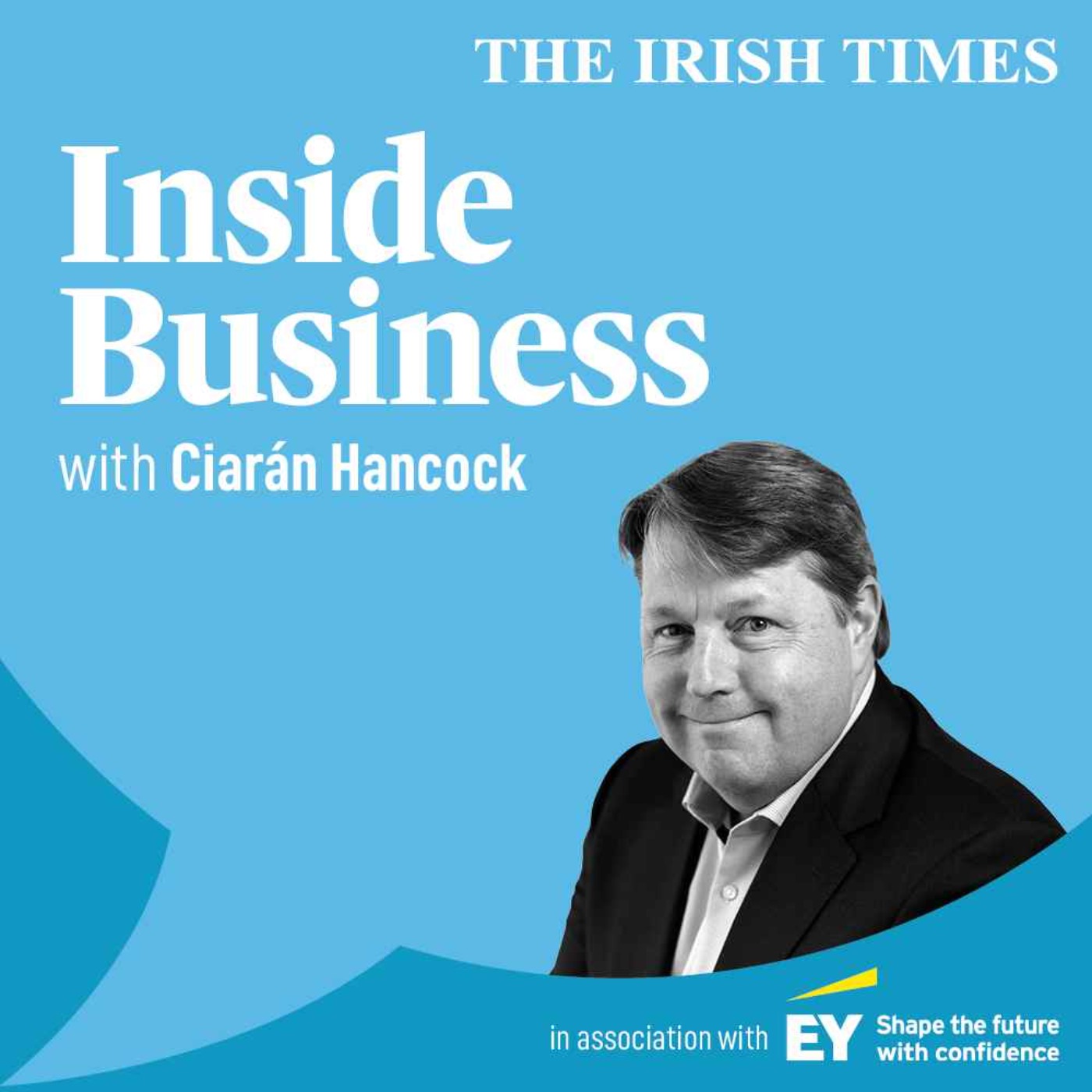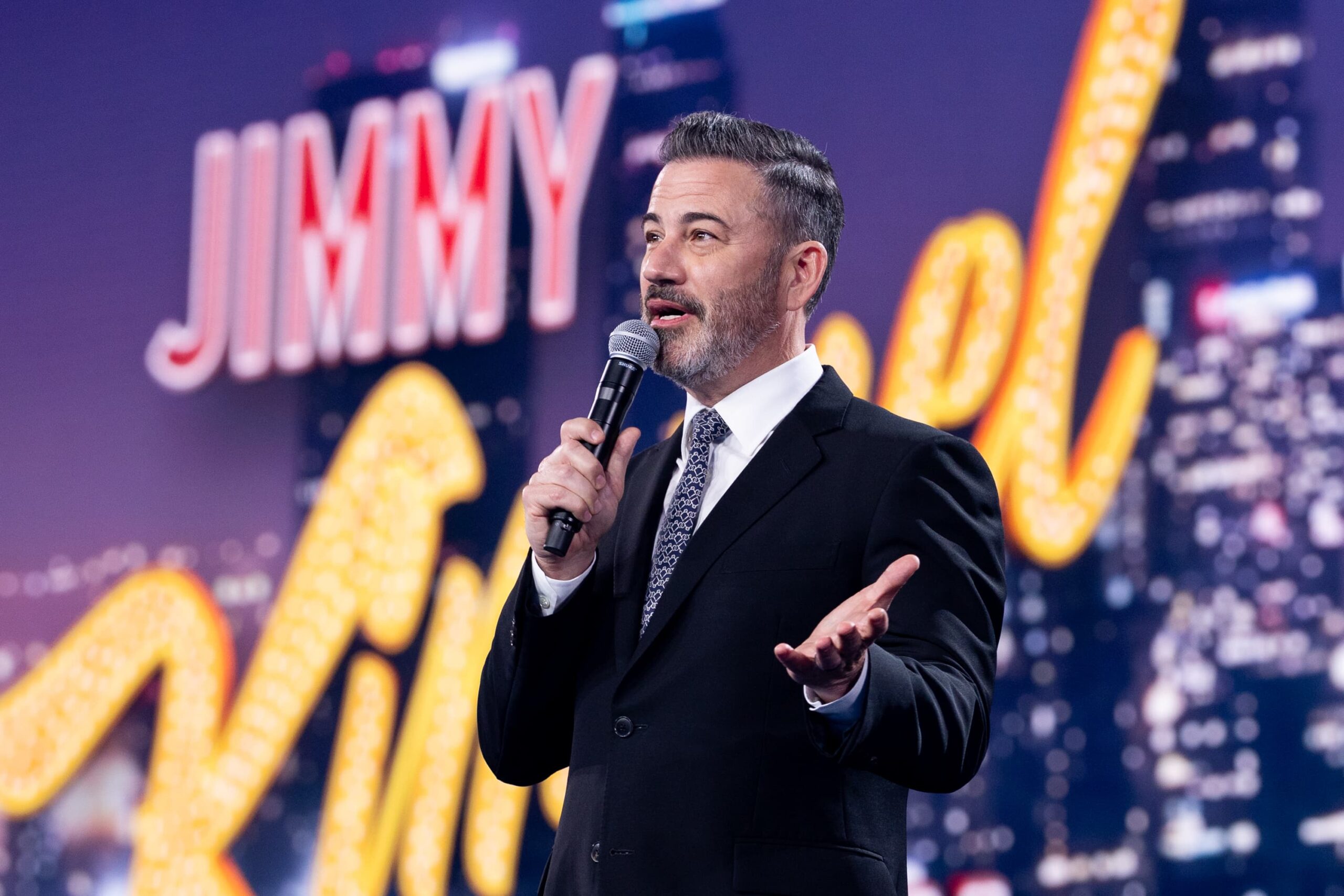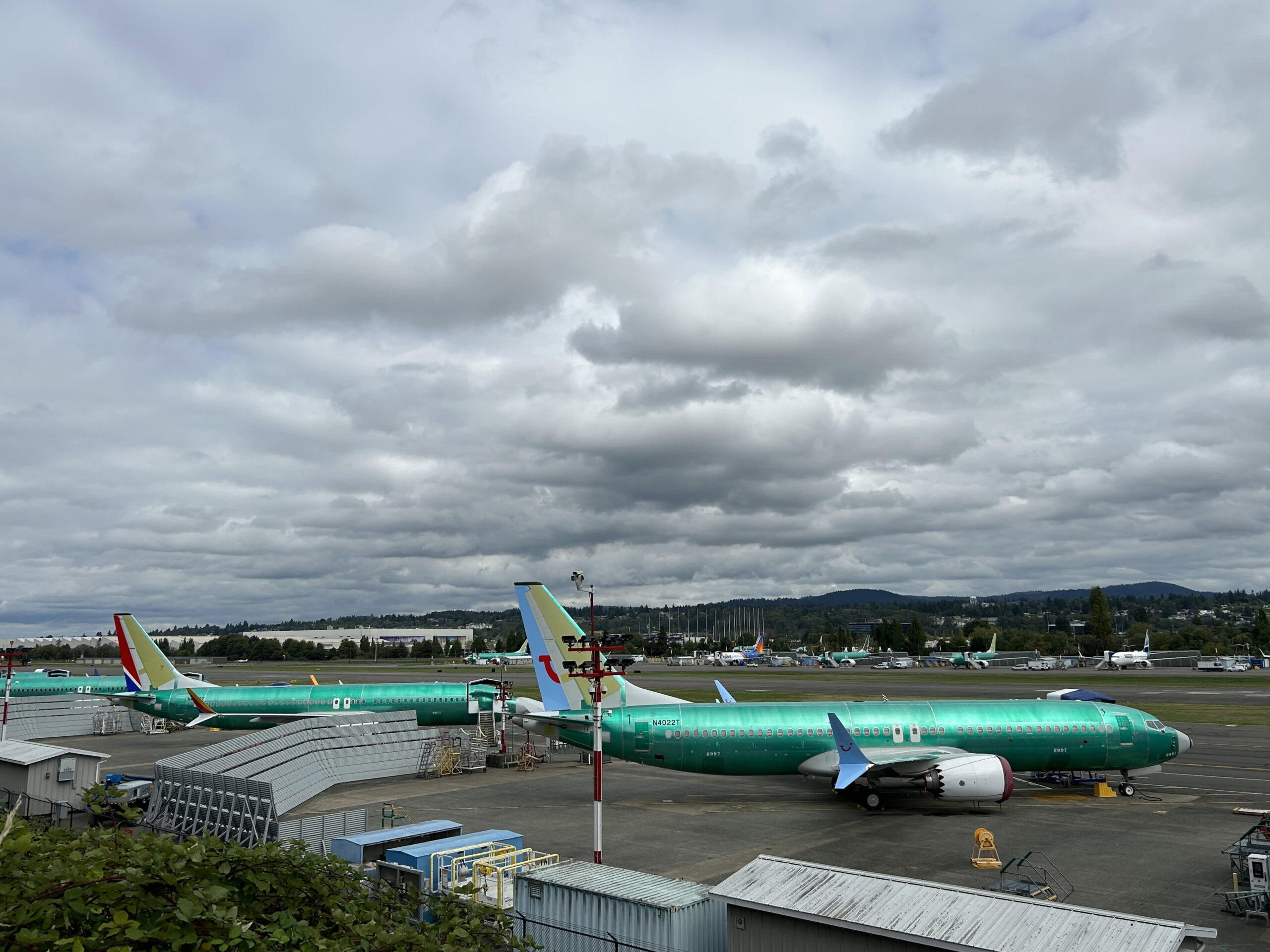The NFL comes to Dublin: How it became the richest sports league in the world
Listen | 26:19

Read more on post.
US President Donald Trump’s latest tariffs targeting pharmaceuticals do not apply to countries that already have negotiated trade deals, a White House official said on Friday, in a move that will likely be greeted with relief in Ireland and the European Union,
Asked whether pharmaceutical tariffs apply to trading partners such as the European Union and Japan that already have trade deals, the official said the Trump administration would honor the 15 per cent cap as part of those pacts, Reuters reported.
That would appear to lift any immediate threat that the EU and Ireland could be hit with the 100 per cent tariff Mr Trump had threatened in a social media post on Friday.
The Government had earlier said a deal capping future US tariffs on imports of pharmaceuticals from Europe still stands, despite Mr Trump’s threats of much higher trade levies.
Mr Trump announced plans to hit pharmaceuticals with a 100 per cent import tax from October 1st, unless drugmakers were building new manufacturing plants in America.
Officials in Brussels and Dublin had spend Friday assessing where the threat leaves a EU-US tariff deal agreed earlier this year, which limited any coming US tariffs on pharma imports to a 15 per cent cap.
In a post on his Truth Social platform, Mr Trump dropped his latest tariff bombshell, stating the White House would be introducing huge import levies on pharmaceutical products.
“Starting October 1st, 2025, we will be imposing a 100 per cent tariff on any branded or patented pharmaceutical product, unless a company IS BUILDING their pharmaceutical manufacturing plant in America,” Mr Trump wrote. “There will, therefore, be no tariff on these pharmaceutical products if construction has started.”
The US president did not state whether this 100 per cent tariff rate would apply to European trade.
In a statement, Tánaiste and Minister for Foreign Affairs Simon Harris stressed the transatlantic deal on tariffs remained in place.
“We will be studying the impact of this announcement, which includes a number of exemptions, together with EU colleagues,” he said.
The deal agreed by Mr Trump and European Commission president Ursula von der Leyen was “absolutely clear” that any US tariffs on pharma imports would be limited to 15 per cent, Mr Harris said.
“This remains the case and underlines again the value of the agreement,” he said.
Mr Trump’s latest salvo drew a modest reaction from investors in morning market trading on Friday. Shares in Denmark’s Novo Nordisk were down 1.5 per cent on the day, but other big pharma groups, such as the UK’s AstraZeneca and Switzerland’s Roche, were broadly flat after initial falls.
The tariff deal saw the EU agree to suck up across-the-board tariffs on future trade with the US. This was done to avoid a full-blown trade war between the two long-standing economic partners.
Listen | 26:19
Officials in the European Commission, the EU’s executive arm that steers trade policy, are confident Mr Trump’s announcement does not mean the EU’s tariff deal has been binned.
A commission spokesman said commitments from the Trump administration to limit any pharma tariffs to a 15 per cent ceiling were clear.
The EU and US would “continue engaging” on the implementation of that deal, “while exploring further areas for tariff exemptions as well as wider co-operation”, the spokesman said.
Ireland is the most exposed state in the EU to tariffs on the pharma sector.
US pharma giants Pfizer, Eli Lilly, MSD and others have large manufacturing plants in the Republic, producing drugs to ship back across the Atlantic. The industry accounts for a huge portion of the State’s exports and trade with the US and contributes a sizeable amount to the corporation tax take.
Mr Trump views tariffs as a way to pressure US multinational companies to relocate manufacturing capacity and jobs to America, often singling out Ireland as a country that “stole” pharmaceutical firms from the US.
[ World economy yet to feel full force of tariffsOpens in new window ]
A situation where tariffs were introduced on medicines and pharma products would be “the worst of all worlds”, a body representing the European pharmaceutical industry said.
Nathalie Moll, head of the European Federation of Pharmaceutical Industries and Associations, said “urgent discussions” were needed to avoid tariffs on the sector. “Tariffs increase costs, disrupt supply chains and prevent patients from getting life-saving treatments,” she said.
Mr Trump also announced new tariffs on a number of other industries and products.
Imported heavy trucks will be subject to a 25 per cent duty, kitchen cabinets and bathroom vanities will be hit with a 50 per cent charge, and upholstered furniture imports are to be taxed at 30 per cent, he said.

Read more on post.

Sinclair is returning “Jimmy Kimmel Live!” to its ABC affiliate broadcast stations beginning Friday, the company said in a statement.
The announcement comes three days after Disney’s ABC broadcast network returned the late night program to its air after a nearly week-long suspension. Disney had temporarily suspended the late night show following comments Kimmel made about the alleged murder of conservative activist Charlie Kirk and President Donald Trump’s MAGA movement.
“Our objective throughout this process has been to ensure that programming remains accurate and engaging for the widest possible audience. We take seriously our responsibility as local broadcasters to provide programming that serves the interests of our communities, while also honoring our obligations to air national network programming,” Sinclair said in a statement on Friday.
“Over the last week, we have received thoughtful feedback from viewers, advertisers, and community leaders representing a wide range of perspectives,” Sinclair said. “We have also witnessed troubling acts of violence, including the despicable incident of a shooting at an ABC affiliate station in Sacramento. These events underscore why responsible broadcasting matters and why respectful dialogue between differing voices remains so important.”
Broadcast station owner Sinclair, along with fellow station owner Nexstar Media Group, said earlier this week they would continue to preempt Kimmel’s late night show, meaning it would be unavailable on local stations for roughly 20% of the country, while they evaluated the situation and continued discussions with Disney.
Kimmel addressed the situation — and the ongoing preemptions — during his returning show this week.
“We are still on the air in most of the country, except, ironically, from Washington, D.C., where we have been preempted,” Kimmel said during Tuesday’s monologue. “After almost 23 years on the air, we’re suddenly not being broadcast in 20% of the country, which is not a situation we relish.”
Sinclair owns roughly 40 ABC affiliate stations in the U.S., including one in in Washington, D.C. Nexstar owns about 30 in markets including Salt Lake City and New Orleans.
A Nexstar representative didn’t immediately respond to comment. Disney declined to comment.
Sinclair said Friday it had proposed measures to “strengthen accountability, viewer feedback, and community dialogue” at ABC and its affiliates.
“While ABC and Disney have not yet adopted these measures, and Sinclair respects their right to make those decisions under our network affiliate agreements, we believe such measures could strengthen trust and accountability,” it said.
Kimmel’s suspension last week came shortly after Nexstar announced it would not air the program in light of the host’s comments. Sinclair soon after said it would likewise preempt the program.
Those announcements followed comments from Federal Communications Commission Chairman Brendan Carr that suggested ABC affiliate stations could be at risk of losing broadcast station licenses over Kimmel’s remarks, which came during a show monologue.
The series of events raised questions about influence by the Trump administration on the media and First Amendment protections.
“Our decision to preempt this program was independent of any government interaction or influence,” Sinclair said Friday. “Free speech provides broadcasters with the right to exercise judgment as to the content on their local stations. While we understand that not everyone will agree with our decisions about programming, it is simply inconsistent to champion free speech while demanding that broadcasters air specific content.”
Earlier this week, Sen. Maria Cantwell, D-Wash., sent a letter to Sinclair pushing to bring “Jimmy Kimmel Live!” back on air. Sinclair owns the Seattle ABC affiliate station.

Read more on post.

Boeing can sign off on some of its 737 Max and 787 Dreamliner planes before they’re handed over to customers, the Federal Aviation Administration said Friday, the latest sign the manufacturer is regaining confidence from its regulator after years of safety crises.
The FAA stopped allowing Boeing to issue its own airworthiness certificates for 737 Max airplanes in 2019 after two fatal crashes. It made a similar decision for Boeing 787s in 2022 because of production defects.
Since the second Max crash, in March 2019, the FAA solely issued airworthiness certificates, which certify planes as safe to fly, for the Maxes. The FAA said that it and Boeing will issue the certificates on alternating weeks.
“Safety drives everything we do, and the FAA will only allow this step forward because we are confident it can be done safely,” the FAA said in a statement. “This decision follows a thorough review of Boeing’s ongoing production quality and will allow our inspectors to focus additional surveillance in the production process.”
Boeing didn’t immediately comment.
The company has been working for years to move past a series of safety and manufacturing issues. A midair blowout of a door panel from one of its new 737 Max 9s in January 2024 set those plans back further, with the FAA capping production of the Maxes and increasing scrutiny of Boeing, a top U.S. exporter.
“If Boeing requests a production rate increase, onsite FAA safety inspectors will conduct extensive planning and reviews with Boeing to determine if they can safely produce more airplanes,” the FAA said Friday.
Boeing CEO Kelly Ortberg, who took the helm just over a year ago, has said the company is focused on stabilizing its production rate of its Maxes at 38 month, and he has expressed optimism about evaluating an increase beyond that with the FAA.
“I feel pretty confident that we’ll be in a position here pretty soon to sit down with the FAA and go through what we call a capstone review, which is the process we go through to not just go through these [key performance indicators], but to look at our entire supply chain readiness, our continued production readiness and move forward with that,” he said at a Morgan Stanley investor conference earlier this month.
Boeing shares were up about 4% Friday.

Read more on post.
Aer Lingus cabin crew’s trade union is calling on members to reject the offer of a 4 per cent pay boost from the airline in a vote next week, it has emerged.
About 2,000 flight attendants will begin balloting on Tuesday on the offer of a 3 per cent or €960-a-year increase, whichever is greater, from January 1st next year, followed by 1 per cent or €320, whichever is greater, from July 1st.
However, the Aer Lingus cabin crew branch committee of their trade union, Fórsa, is recommending that they vote against the offer as most members say the deal does not go far enough.
The news comes as trade union Siptu is running 10 different ballots across its members in the airline on pay increases. Willie Noone, Siptu’s divisional organiser, said on Friday that a result from those votes is due on October 9th.
A letter from the Fórsa branch committee to members shows that 90 per cent of those who took part in a poll responded that the offer was not acceptable.
[ Aer Lingus non-pilot staff to ballot on 4% pay riseOpens in new window ]
Fórsa’s members’ news bulletin reported the branch committee’s recommendation on Friday.
Union official Lisa O’Connell explained that the poll showed clearly that the proposals “did not go far enough” in closing a pay gap that emerged between cabin crew and pilots during the Covid-19 pandemic, when airline workers suffered severe pay cuts.
Listen | 26:19
According to a letter to members, Fórsa asked the company to bridge this by paying cabin crew two €1,500 tax-free vouchers, but management said it could not do this.
Ms O’Connell pointed out that pandemic pay cuts hit cabin crew hard.
“Many are still trying to recover financially as a result of those Covid-era measures, and our cabin crew members believe the deal falls short of undoing the legacy of those measures,” she said.
Cabin crew suffered a 70 per cent pay cut while pilots’ earnings fell 50 per cent.
Stemming from the pandemic, pilots were due to pay €34 million in total back to the company through pay deals.
However, following weeks of industrial action in June and July 2024, an agreement that increased pilot pay by 17.75 per cent also wrote off that debt.
That deal prompted cabin, ground and craft workers’ unions to seek a 4 per cent pay increase from the company.
However, Aer Lingus sought increased productivity in return. Talks have been taking place for several months.
Mr Noone explained that Siptu, whose members include 1,500 ground crew at the airline, is running 10 separate ballots simultaneously as the company is proposing different measures for different groups across Dublin, Cork and Shannon airports.
He confirmed that voting was continuing. Aer Lingus did not comment.
European Parliament snubs Orbán with vote to shield Italian MEP from Hungarian arrest


Life, loss, fame & family – the IFI Documentary Festival in focus
EU renews support for WHO’s Universal Health Coverage Partnership


Fatal, flashy and indecent – the movies of Adrian Lyne revisited


Key oceans treaty crosses threshold to come into force


Twilight at 20: the many afterlives of Stephenie Meyer’s vampires


Farewell, Sundance – how Robert Redford changed cinema forever


What is KPop Demon Hunters, and why is everyone talking about it?